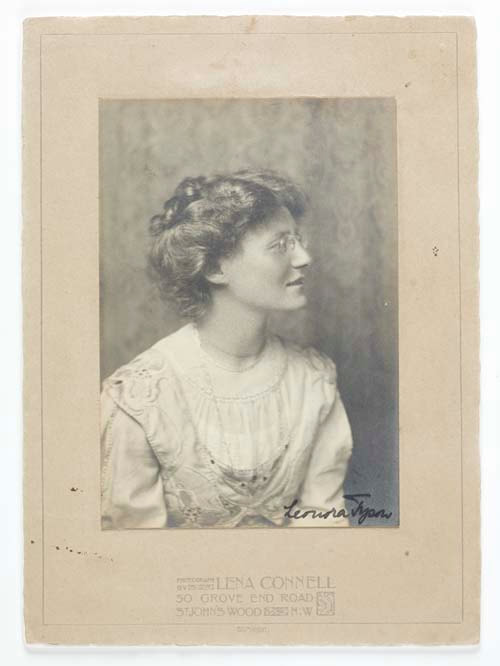Leonora joined the Women’s Social and Political Union with her mother Helen and sister Diana in 1908. The following year Leonora became Honorary Secretary of the Streatham branch of the WSPU and in 1910, Organising Secretary of the Lambeth branch. As well as attending weekly meetings on Streatham Common, Leonora was an effective fundraiser for the campaign, organising Streatham's contribution to the Women's Exhibition of 1909.
Leonora also edited the Anti-Suffrage Alphabet by Laurence Housman.
Advertised in 'Votes for Women' on 15 December 1911, it was marketed as a suitable gift for Suffragette supporters.
Leonora received book orders at her home address in Streatham, where she printed each edition by hand.
In 1911, Suffragettes boycotted the national census, refusing to register their names: “If women do not count, neither shall they be counted.”
Leonora took part in the boycott by spending census night, along with other Suffragettes, at her local WSPU branch shop at 5 Shrubbery Road, Streatham.
Leonora was bilingual, her father being German. In October 1911 she represented the WSPU at the Women's Congress in Hamburg.
The following year she returned to Germany for a speaking tour on female suffrage.
In March 1912, Leonora served her only prison sentence for militancy. Sentenced to two months hard labour for breaking windows at Government Offices, she went on hunger strike and was force-fed.
From her prison letters in the Museum of London, Leonora indicates that she went on hunger strike from Sunday 14 April at 4pm, and was first force-fed on Wednesday 17 April at 5pm.
Leonora was released from prison on 8 May 1912.
On 10 May, along with three fellow released Suffragettes, she attended a Prisoners’ Reception at Streatham Town Hall, organised by the Streatham WSPU branch, where she was presented with a specially commissioned medal of valour.
(Source Museum of London)

